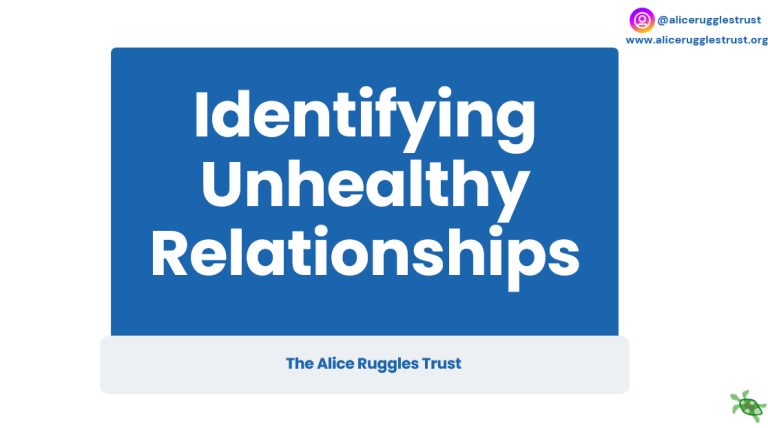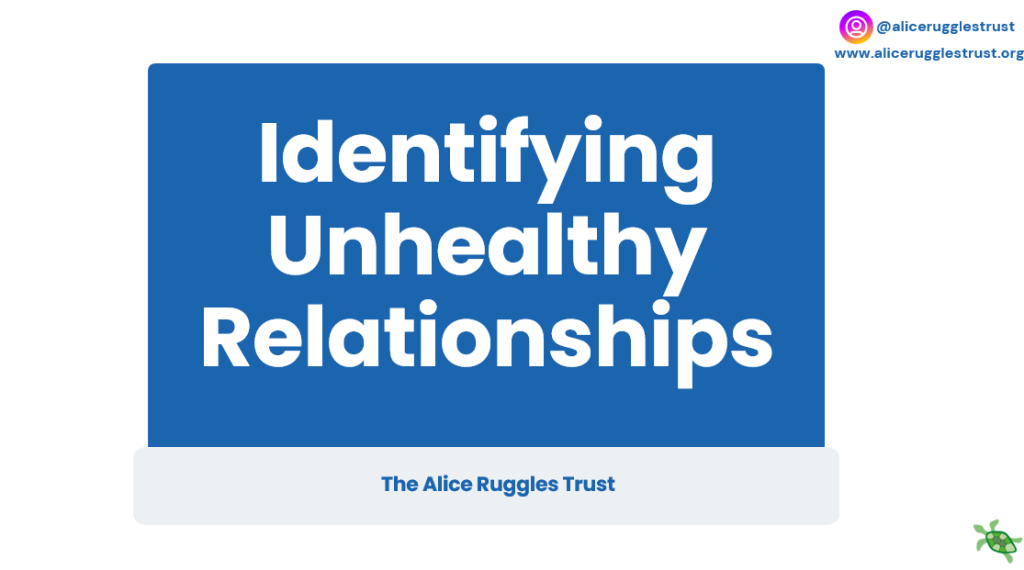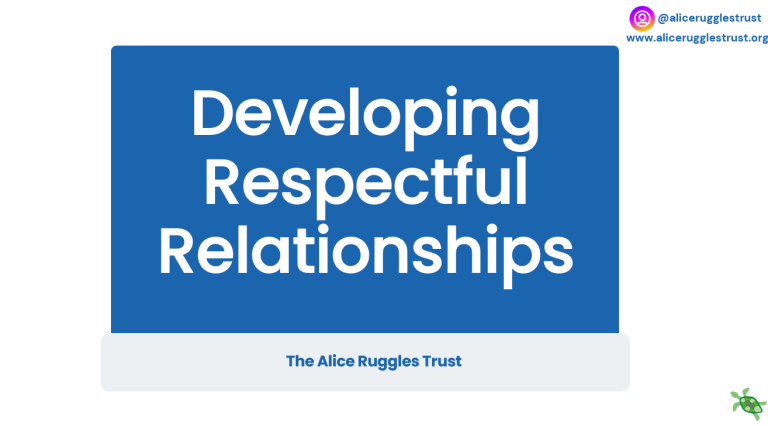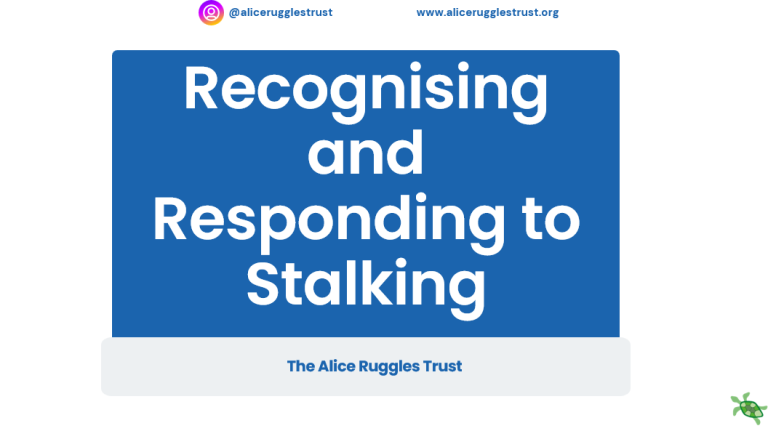Our Relationship Safety Resource (PSHE lessons)

The Alice Ruggles Trust’s Relationship Safety Resource is a package of teaching materials and lesson plans on stalking and coercive behaviour that are freely available to secondary teachers throughout the UK as part of the statutory RSE (relationships and sex education) strand of the PSHE curriculum. There is a package of three lessons aimed at Key Stage 4 (14- to 16-year-olds) and a single lesson suitable for Key Stage 3 (12- to 14-year-olds).
The lessons promote awareness of unhealthy relationship behaviours and stalking in order to help protect young people from the potential risks in such situations. The focus throughout is on raising awareness of the steps young people can take to support their safety and emotional wellbeing whilst reinforcing that stalking and harassment are both socially unacceptable and illegal.
PSHE resources such as these are particularly important in the light of the Ofsted’s Review of sexual abuse in schools and colleges published in June 2021, which documents the scale and nature of sexual abuse in schools and the increasing “normalisation” of unhealthy relationship behaviours.
The resource is being offered free to schools to help ensure that young people learn essential safeguarding information and skills in an interactive yet safe and age-appropriate way.
In return, we kindly ask you to spend just a few extra minutes to provide feedback. This is really important to us so that we can improve our resources and make them even more effective. The download package includes a feedback form and clear instructions.

Key Stage 4 lessons
These three lesson plans and accompanying materials cover:
- Identifying and managing unhealthy relationship behaviours
- Recognising and managing unwanted attention
- Recognising inappropriate behaviour and seeking support
Guidance videos for the Key Stage 4 lessons

Key Stage 3 lesson
This new Key Stage 3 lesson supports students to identify unacceptable behaviour, to know why it is unacceptable and when it should be reported, and to recognise the factual definition of stalking.
It explains how the term ‘stalking’ is used in modern language and the effect this can have, how to report incidents, and how get support for oneself or for others if concerns arise.

The complete school package
We have also designed a 30-minute school assembly that can be used to introduce the topic of stalking prior to the PSHE lessons.
Our complete school package, available for free to secondary schools and colleges, includes:
- an assembly led by a representative of the Alice Ruggles Trust;
- a full suite of resources, including PSHE lesson plans, walkthrough videos, and the assembly slides; and
- online training for staff so they can confidently use the resources themselves and lead assemblies and lessons in the future.
If you are interested in the training options, please let us know using our schools enquiry form.